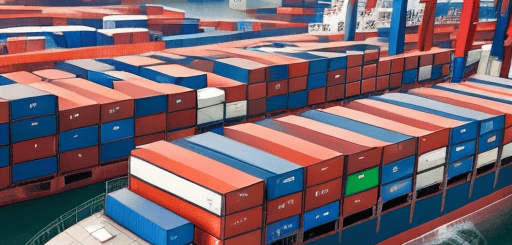Trade embargoes are powerful instruments employed by governments to achieve political, economic, and security objectives. They can have far-reaching effects on targeted countries' economies, diplomatic relations, and humanitarian situations. Understanding the different types, purposes, and consequences of trade embargoes is crucial in comprehending their role in international relations.
Types of Trade Embargoes
- Comprehensive Embargoes: These embargoes prohibit almost all forms of trade, including goods, services, and financial transactions, with the targeted country or entity. Comprehensive embargoes are the most restrictive type and often involve multiple sectors.
- Partial Embargoes: Partial embargoes focus on specific goods, services, or industries. They restrict trade in targeted sectors while allowing other forms of trade to continue.
- Arms Embargoes: Arms embargoes specifically target the trade of weapons, military equipment, and related technologies. They aim to prevent the escalation of conflicts, promote regional stability, or discourage human rights abuses.
Purposes of Trade Embargoes
- National Security: Embargoes may be imposed to protect national security interests, such as preventing the proliferation of weapons of mass destruction, countering terrorism, or addressing regional conflicts.
- Human Rights and Democracy: Trade embargoes can be utilized to respond to human rights abuses, violations of democratic principles, or oppressive regimes. They serve as a means to exert pressure and promote adherence to international norms.
- Non-Proliferation: Embargoes may target countries or entities involved in the development or proliferation of nuclear, chemical, or biological weapons, as well as ballistic missile technology.
- Economic Sanctions: Economic sanctions, which can include trade embargoes, are employed to influence the economic behavior of a targeted country or entity. They aim to alter policies, practices, or behavior that are deemed unfavorable or harmful.
Effects of Trade Embargoes
- Economic Impact: Trade embargoes can have significant economic consequences, impacting the targeted country's trade balance, GDP, and employment. They disrupt supply chains, limit market access, and create trade imbalances.
- Political and Diplomatic Ramifications: Embargoes can strain diplomatic relations and lead to political tensions between the imposing country and the targeted country. They may also affect regional stability and cooperation.
- Humanitarian Considerations: Trade embargoes can inadvertently affect humanitarian aid and access to essential goods and services, potentially exacerbating humanitarian crises in the targeted country.
Notable Examples of Trade Embargoes
- United States Embargo on Cuba: The U.S. embargo on Cuba, in place since 1960, restricts trade and financial transactions between the two countries. It has had a profound impact on Cuba's economy and bilateral relations.
- United Nations Embargo on North Korea: The United Nations Security Council imposed comprehensive sanctions on North Korea to deter its nuclear weapons and missile programs. These embargoes restrict various forms of trade with North Korea.
- European Union Sanctions on Russia: In response to Russia's annexation of Crimea, the European Union imposed trade restrictions on certain sectors and individuals, targeting Russia's economy.
Read more views
August 29, 2024

February 10, 2024

February 5, 2024

January 30, 2024

January 25, 2024

January 20, 2024

January 15, 2024

January 10, 2024

January 5, 2024

December 30, 2023

December 25, 2023

December 20, 2023

December 15, 2023

December 14, 2023

December 10, 2023

December 5, 2023

November 30, 2023

November 25, 2023

November 20, 2023

November 15, 2023

November 10, 2023

November 5, 2023

October 30, 2023

October 25, 2023

October 20, 2023

October 15, 2023

October 10, 2023

October 5, 2023

September 30, 2023

September 25, 2023

September 20, 2023

September 10, 2023

September 5, 2023

August 30, 2023

August 25, 2023

August 20, 2023

August 15, 2023

August 10, 2023

August 5, 2023

July 30, 2023

July 25, 2023

July 20, 2023

July 15, 2023

July 10, 2023

July 5, 2023

June 30, 2023

June 30, 2023

June 28, 2023

June 26, 2023

June 25, 2023

June 23, 2023

June 23, 2023

June 21, 2023

June 20, 2023

June 15, 2023

June 15, 2023

June 13, 2023

June 10, 2023

June 8, 2023

June 7, 2023

June 5, 2023

June 5, 2023

June 2, 2023
May 31, 2023

May 25, 2023

May 17, 2023

May 12, 2023

May 9, 2023

May 8, 2023

May 5, 2023

May 3, 2023
May 1, 2023

April 11, 2023

March 14, 2023

March 1, 2023

February 27, 2023

February 16, 2023

February 8, 2023

January 17, 2023

January 12, 2023


